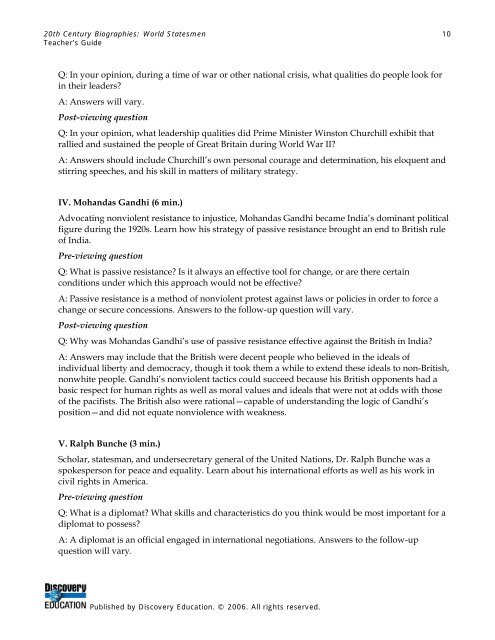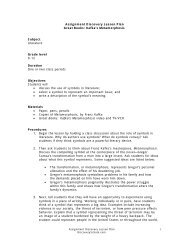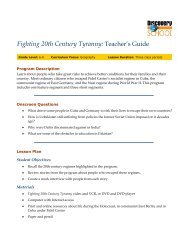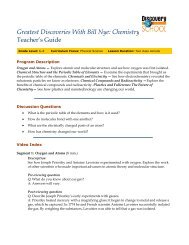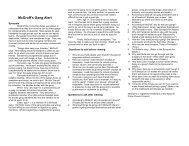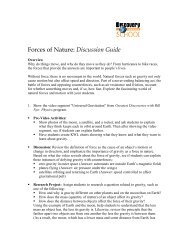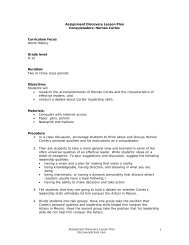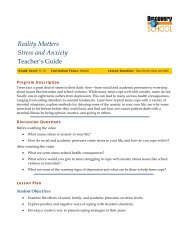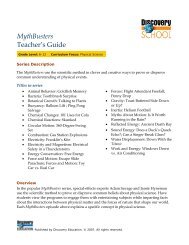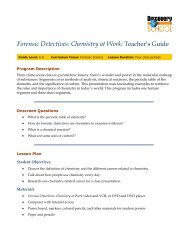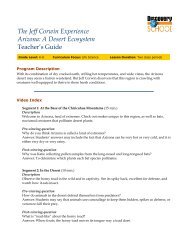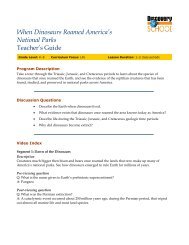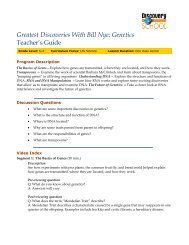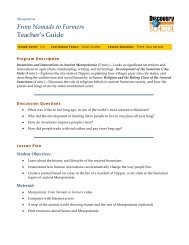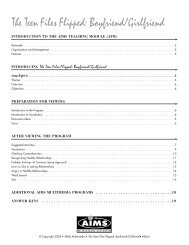Discovering History 20th Century Biographies:World Statesmen ...
Discovering History 20th Century Biographies:World Statesmen ...
Discovering History 20th Century Biographies:World Statesmen ...
You also want an ePaper? Increase the reach of your titles
YUMPU automatically turns print PDFs into web optimized ePapers that Google loves.
<strong>20th</strong> <strong>Century</strong> <strong>Biographies</strong>: <strong>World</strong> <strong>Statesmen</strong><br />
Teacher’s Guide<br />
Q: In your opinion, during a time of war or other national crisis, what qualities do people look for<br />
in their leaders?<br />
A: Answers will vary.<br />
Post-viewing question<br />
Q: In your opinion, what leadership qualities did Prime Minister Winston Churchill exhibit that<br />
rallied and sustained the people of Great Britain during <strong>World</strong> War II?<br />
A: Answers should include Churchill’s own personal courage and determination, his eloquent and<br />
stirring speeches, and his skill in matters of military strategy.<br />
IV. Mohandas Gandhi (6 min.)<br />
Advocating nonviolent resistance to injustice, Mohandas Gandhi became India’s dominant political<br />
figure during the 1920s. Learn how his strategy of passive resistance brought an end to British rule<br />
of India.<br />
Pre-viewing question<br />
Q: What is passive resistance? Is it always an effective tool for change, or are there certain<br />
conditions under which this approach would not be effective?<br />
A: Passive resistance is a method of nonviolent protest against laws or policies in order to force a<br />
change or secure concessions. Answers to the follow-up question will vary.<br />
Post-viewing question<br />
Q: Why was Mohandas Gandhi’s use of passive resistance effective against the British in India?<br />
A: Answers may include that the British were decent people who believed in the ideals of<br />
individual liberty and democracy, though it took them a while to extend these ideals to non-British,<br />
nonwhite people. Gandhi’s nonviolent tactics could succeed because his British opponents had a<br />
basic respect for human rights as well as moral values and ideals that were not at odds with those<br />
of the pacifists. The British also were rational—capable of understanding the logic of Gandhi’s<br />
position—and did not equate nonviolence with weakness.<br />
V. Ralph Bunche (3 min.)<br />
Scholar, statesman, and undersecretary general of the United Nations, Dr. Ralph Bunche was a<br />
spokesperson for peace and equality. Learn about his international efforts as well as his work in<br />
civil rights in America.<br />
Pre-viewing question<br />
Q: What is a diplomat? What skills and characteristics do you think would be most important for a<br />
diplomat to possess?<br />
A: A diplomat is an official engaged in international negotiations. Answers to the follow-up<br />
question will vary.<br />
Published by Discovery Education. © 2006. All rights reserved.<br />
10


